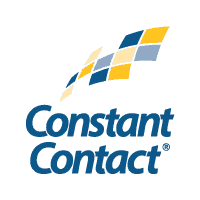We may earn a commission if you click on a product link and make a purchase at no additional cost to you. For more information, please see our disclosure policy.
However, it is not that simple. Not every company can benefit from contingency staffing. In many situations, traditional staffing is the better option. Why is that the case? And what are the differences between contingency staffing and traditional staffing all about? Here are the answers to your questions and a few tips that you might find helpful!
What Is Traditional Staffing?
Traditional staffing involves hiring employees for a specific period of time, ranging from a few months to a few years. For example, you can hire someone for one year. That will require you to pay that employee a
What is Contingency Staffing?
On the other hand, contingency staffing means hiring employees on a short-term basis. The worker is paid only for the hours they actually worked, and there is no work for that person for the rest of the day. This type of staffing is often used in industries when there are large fluctuations in workloads, such as agriculture or manufacturing.
Discover flexible jobs that are far better than a typical job. Find Remote Work From Home and Flexible Jobs, Explore job categories, Explore 50+ career fields, Remote jobs that are full-time and part-time, Employee and freelance jobs, On-site jobs with flexible schedules, All hand-screened, vetted and professional.
What Are the Differences?
Each staffing type offers distinct advantages and disadvantages. Below are several factors to consider when deciding between traditional and contingency staffing. Explore these insights to make an informed choice!
Immediate Goals
If you need to complete a project quickly, contingent staffing is an excellent solution. On the other hand, if your deadline is flexible, traditional staffing is likely the better choice. Frequently changing workers on a long-term project can lead to confusion and potentially delay its completion.
Navigating staffing options? Understand when to opt for traditional staffing and when to leverage contingency staffing for maximum efficiency. Find the right fit for your business needs! #StaffingSolutions #TraditionalVsContingency #HiringStrategiesClick To TweetCooperation Between Staff Members
If your employees make for a great
Company Culture
Traditional staffing works well in companies where people are invested in their work and want new challenges, as well as when there is a positive atmosphere. However, if such a culture is not present in your company, using contingents can be a great way to fix this problem.
These workers are not a part of your company and are not used to having the same job responsibilities as your employees. If they end up being more motivated to achieve their goals than your current workers, it might positively affect your company culture.
How work should work. Forget the old rules. You can have the best people.
Right now. Right here. Upwork makes it affordable to up your work and take advantage of low transaction rates.
Up your work game, it’s easy. No cost to join, Post a job and hire top talent, Work with the best—without breaking the bank
Additionally, contingent employees usually come with their own ideas and approaches to completing tasks, which might make your
Seasonality
If the workload that your workers have to deal with fluctuates depending on the season, you should think about contingency staffing. For instance, if you own a hotel and all the rooms are booked in July and August, then
Specific Skills
If you are in need of really specific
The Eisenhower Matrix is a method of prioritizing your tasks based on their urgency. It also allows you to identify tasks that you should either delegate or leave undone.
Turnover Rate
It is very important to have a look at your turnover rate every year. If it is high and you cannot figure out why that is the case, using contingent workers may be a good solution to the problem. Why is that the case?
In most cases, high turnover rates are caused by the workers not being able to deal with their workload. Contingent workers can help with that by allowing you to figure out which tasks your employees are struggling with. Once you do that, you can make contingents and keep on completing these tasks, which should effectively lower your turnover rate.
Risk
With traditional staffing, you take a lot of risks. What if the people you hired end up behaving unprofessionally? What if they do not have the
Each contingency staffing agency will make sure that all workers are properly screened and verify whether they have the
Quickly Hire makes it easy to build a global team of vetted freelancers without the financial, legal, and administrative headaches.
Give Contingency Staffing a Try Today!
Both traditional and contingency staffing offer benefits and drawbacks. For example,
If you haven’t considered contingency staffing, it’s worth exploring. This approach can be invaluable during unexpected events, such as a labor strike or sudden staff shortages due to illness. Educating yourself on this option can prepare you to handle such challenges effectively.
Summary
Hiring personnel is one of the most important steps on your road to success. However, finding the right person for the job is never easy, especially if the staffing needs of your company are either really specific or constantly changing. In such a case,
- Not every company can benefit from contingency staffing – In many situations, traditional staffing is the better option. Why is that the case? And what are the differences between contingency staffing and traditional staffing? Here are the answers to your questions and a few tips that you might find helpful!
- Both traditional and contingency staffing offer benefits and drawbacks – For example,
hiring contingent workers can be highly effective for seasonal businesses but may not be suitable for long-term projects.
If you haven’t considered contingency staffing, it’s worth exploring. This approach can be invaluable during unexpected events, such as a labor strike or sudden staff shortages due to illness. Educating yourself on this option can prepare you to handle such challenges effectively.
Additional Resources
-
 $18.49Secrets to Writing a Successful Business Plan: A Pro Shares a Step-by-Step Guide to Creating a Plan that Gets Results by Hal Shelton will open your eyes to insider tips, hints, and techniques for creating a winning business plan.Learn More
$18.49Secrets to Writing a Successful Business Plan: A Pro Shares a Step-by-Step Guide to Creating a Plan that Gets Results by Hal Shelton will open your eyes to insider tips, hints, and techniques for creating a winning business plan.Learn MoreWe earn a commission if you click this link and make a purchase at no additional cost to you.
07/05/2025 10:01 pm GMT -
Browse Templates
Don’t get lost in spreadsheets! We build the world’s best templates and dashboards for Project Management, Strategy, HR, Accounting & Finance, Marketing, and much more. Download our ready-to-use templates and save time to focus on your business.
We earn a commission if you click this link and make a purchase at no additional cost to you.
-
 Learn More
Learn MoreEasy-to-Use Accounting & Bookkeeping Features. Invoicing and Accounting Tools Built for Any Sized Business
We earn a commission if you click this link and make a purchase at no additional cost to you.
-
 $13.99Buy on Amazon.com
$13.99Buy on Amazon.comAre you tired of the daily grind and dreaming of breaking free from the corporate world? Look no further! The Corporate Escape Plan: Transitioning from Employee to Entrepreneur is your ultimate guide to leaving behind the 9-5 and becoming the master of your own destiny.
We earn a commission if you click this link and make a purchase at no additional cost to you.
07/06/2025 08:00 pm GMT -
 $11.99Learn More on Amazon.com
$11.99Learn More on Amazon.comUnleash your potential with this companion that goes beyond ordinary notebooks. The Brainstorming Journal and Workbook is not just basic pages bound together.
We earn a commission if you click this link and make a purchase at no additional cost to you.
07/06/2025 01:03 am GMT -
 Get started for free
Get started for freeAdd to your bottom line, not your to-do list.
Email, social media, and more to help your business get the attention it deserves.
We earn a commission if you click this link and make a purchase at no additional cost to you.
-
Start my business
Time to be your own boss
Join the millions who launched their businesses with LegalZoom.
LLC plans start at $0 + filing fees.
We earn a commission if you click this link and make a purchase at no additional cost to you.
-
 Buy on Amazon.com
Buy on Amazon.com$27.99$15.99We earn a commission if you click this link and make a purchase at no additional cost to you.
07/06/2025 10:00 pm GMT
Related posts:
Joey Trebif is the pen name of Mark Fiebert, a former finance executive who hired and managed dozens of professionals during his 30-plus-year career. He now shares expert job search, resume, and career advice on CareerAlley.com.





